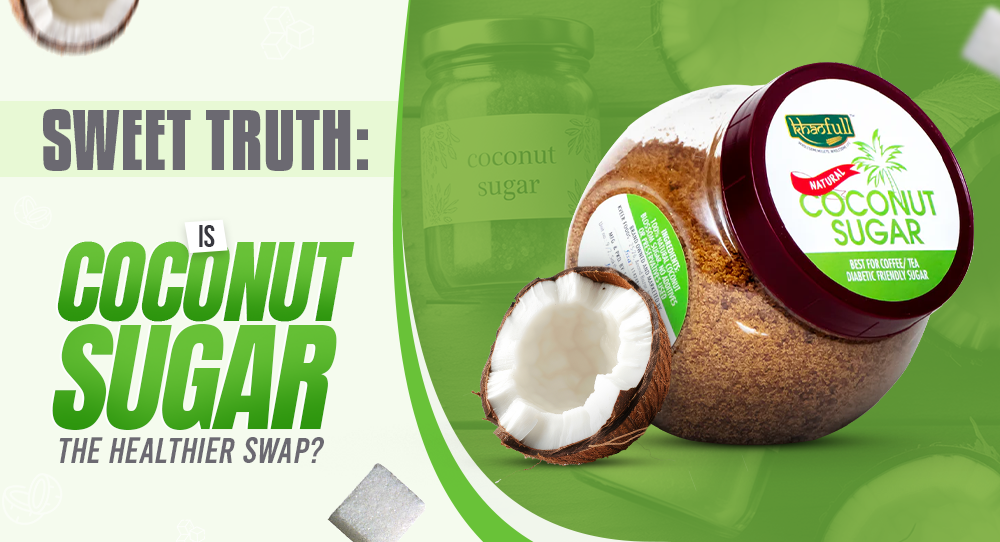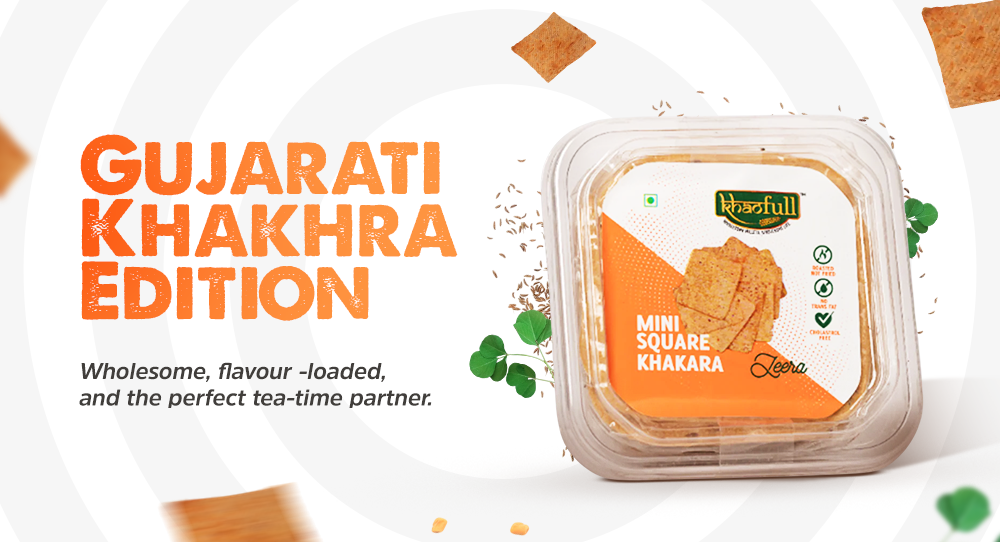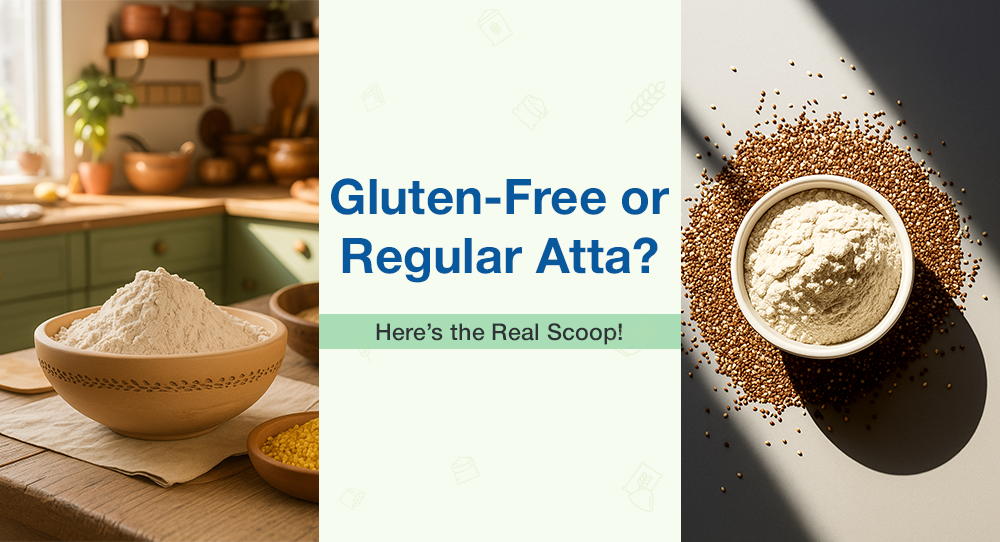When it comes to sweeteners, most of us are on the lookout for healthier alternatives. Whether it’s managing weight, cutting down on refined sugars, or simply choosing more natural ingredients, the quest for the best sugar substitute is real. One name that pops up often is coconut sugar. But is coconut sugar really a healthier alternative—or just cleverly marketed?
Let’s dig a little deeper and uncover the health benefits of coconut sugar, what makes it different from regular sugar, and whether it deserves a spot in your pantry.
What is Coconut Sugar, Really?
Coconut Sugar (sometimes called coconut palm sugar) is derived from the sap of the coconut palm tree—not the coconut fruit itself. The sap is boiled until it thickens and crystallizes into small brown granules that resemble raw cane sugar. It’s minimally processed, often organic, and retains some trace nutrients from the coconut palm sap.
It’s not to be confused with palm sugar, which is made from a different palm variety.
How is Coconut Sugar Different From White Sugar?
At first glance, coconut sugar might look like brown sugar—but nutritionally, there are subtle differences.
|
Coconut Sugar |
White Sugar |
|
Lower glycemic index |
High glycemic index |
|
Contains trace minerals |
No nutrients |
|
Slight caramel flavour |
Neutral sweetness |
|
Less processed |
Highly refined |
The biggest win for coconut sugar is that it’s considered to have a lower glycemic index (GI)—around 35, compared to white sugar’s 60–65. This means it may cause a slower rise in blood sugar levels, making it potentially better for energy stability.
The Health Benefits of Coconut Sugar
While we’re not calling it a superfood, coconut sugar does bring a few subtle advantages:
1. Retains Trace Nutrients
Coconut sugar isn’t stripped of everything during processing. It contains small amounts of iron, zinc, calcium, and potassium, as well as antioxidants and inulin, a type of prebiotic fiber that may support gut health.
2. Lower Glycemic Impact
As mentioned, the glycemic index of coconut sugar is lower than that of refined sugar. For those managing blood sugar spikes or aiming for longer-lasting energy, this is a small but meaningful benefit.
3. Less Processed
Unlike white sugar, coconut sugar undergoes minimal processing and contains no artificial additives or bleaching agents. It’s a more natural sweetener that aligns with clean-label eating.
4. Sustainable Production
Coconut palms produce more sugar per acre than sugarcane and require less water, making coconut sugar an eco-friendlier option.
Where It Falls Short
Let’s be real, coconut sugar is still sugar. While it may offer slightly more nutrients and a gentler impact on blood sugar, it doesn’t mean it can be consumed freely.
It’s calorie-dense and has similar fructose content to table sugar (about 38–45%). Excessive consumption of any sweetener can contribute to weight gain, insulin resistance, and other metabolic issues.
So while it might be the best sugar substitute in terms of flavour and minimal processing, moderation remains key.
Taste and Usage in Daily Life
Coconut sugar has a subtle caramel flavour that makes it perfect for baking, tea, coffee, and desserts. It doesn’t overpower the taste of your recipes and offers a rich, earthy sweetness.
You can use it as a 1:1 substitute for white or brown sugar in most recipes. It blends beautifully in cookies, granola, salad dressings, smoothies, and even traditional Indian sweets if you're looking for a modern twist.
Who Should Consider Coconut Sugar?
-
Clean eaters looking to swap out refined sugar
-
Bakers seeking a more flavourful natural sweetener
-
Those with mild blood sugar concerns, in consultation with a doctor
-
Eco-conscious consumers looking for sustainable ingredients
If you're making small swaps for overall wellness, coconut sugar can be a sweet upgrade.
Final Verdict: Is Coconut Sugar Worth It?
Coconut sugar offers a natural, minimally processed alternative to white sugar with a few nutritional perks. It’s not a magic health food, but if you’re looking to clean up your diet without giving up sweetness, it’s a smart swap.
In short, it’s not health food, but it’s definitely healthier than the overly refined alternatives.
When chosen wisely and used mindfully, coconut sugar can be part of a balanced approach to healthy eating.
Looking for the best sugar substitute for your kitchen?
Khaofull brings you premium coconut sugar that’s unrefined, chemical-free, and crafted to support your wellness goals—naturally.
Try it out and taste the difference, your recipes (and your body) may just thank you.




Leave a comment
This site is protected by hCaptcha and the hCaptcha Privacy Policy and Terms of Service apply.